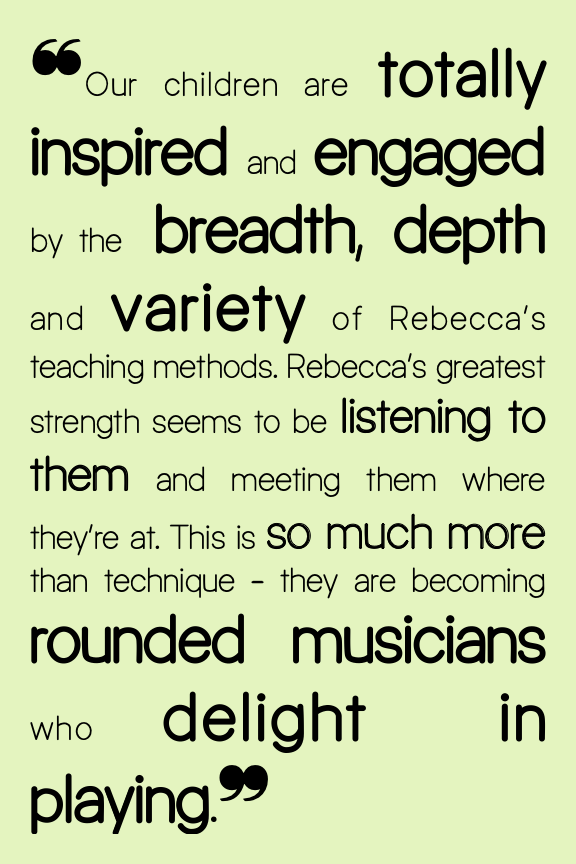Parental involvement is very beneficial to children's learning
The information below is aimed at parents of primary school-aged children but can also help you to support older learners.
I have a detailed guide for caregives available for parents of my pupils, covering many aspects of supporting your child through learning.
Also, see other reading: Samantha Coates on why Piano Playing is like Bike Riding
The Perfect Wrong Note (Learning to Trust Your Musical Self) - William Westney, a wonderful book about learning and playing instruments
Click here for a very useful podcast on motivation.
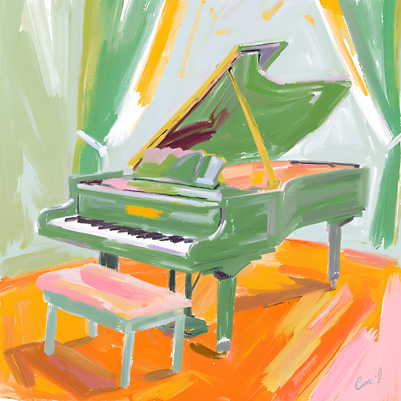 Aim for a helpful learning environment at home
Aim for a helpful learning environment at home
- A suitable piano (see information here),
- A warm, well lit and comfortable room, away from distractions,
- A comfortable seat which brings your child to the correct height,
- Something to support the feet if they do not touch the floor,
- Sheet music, a notebook, pencil and eraser,
- Possibly a device on which to listen to recordings (supervision may be needed to prevent distraction),
- An encouraging, positive atmosphere.
What you can do in lessons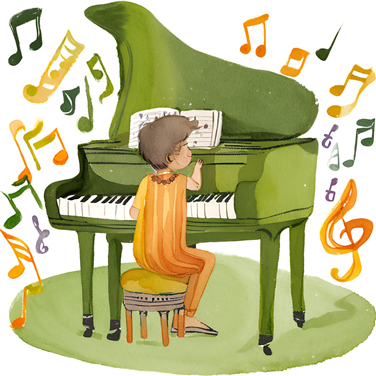
- Where possible, sit in on lessons, take notes and try to understand as much as you can about what your child is learning so that you can support them at home,
- It's best to concentrate rather than bringing other tasks with you to do in the lesson if possible,
- If you have a younger child, one who is waiting to start lessons or has been playing for less time, encourage them to sit in and do a quiet activity so they can absorb what is going on, (this isn't always possible due to space in group lessons),
- Keep up your support for years until the child naturally takes over note-taking and structuring their practice as they mature.
 What to do at other times
What to do at other times
- Expose children to lots of varied music, including as much quality classical music as you can; this can done by listening to recordings or attending performances,
- Listen to recordings of pieces they are working towards,
- Encourage performing in front of friends and family.
How to help make practice happen: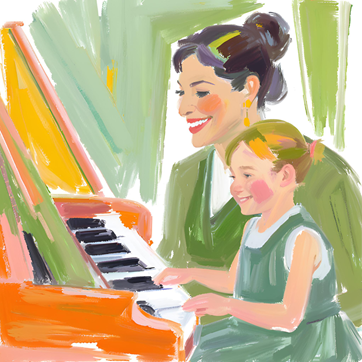
- Help to make time for practice at regular times each day,
- Remind and encourage your child to practice consistently for several years until habits are formed. You will need to support them through the ups and downs of learning for about two years before they truly grasp the enjoyment of playing.
- Whenever possible, sit with them and give them your full attention and support when they are practising - see below.
 How to go about practising a piece:
How to go about practising a piece:
- Help your child break down pieces into smaller parts,
- Encourage correct repetition, and then add variations to keep the interest or increase the challenge,
- Before playing a piece ask your child to tap the rhythm (you could sometimes tap a steady beat while they do this),
- Find 'interesting' parts and features together (these can be the tricky parts) and discuss them before playing,
- Encourage slow playing, counting and hands separate playing,
-
Encourage correct repetition by playing noughts and crosses: take turns with the child, letting them go after a correct repeat and taking your turn when they make a mistake.
How to be really positive about the messy business of practice:

-
Even if you do not fully understand the music, you can be very effective by:
- Praising and encouraging - ideally focusing on the process and progress,
- Being patient, kind, understanding and curious,
- Providing company and applying your common sense,
- Helping your child with qualities such as perseverance, which develop with experience and maturity.
- If you notice something that needs improvement, avoid being critical. Instead, see if you can encourage your child to realise for themself through questioning; this will help them to become a confident, independent learner. (E.g. If you think you hear a wrong note, you could ask your child to explain to you which note on the page corresponds to which note on the piano in that particular part of the music, or ask them if they heard anything which sounded 'a bit strange or surprising').
- Help your child to play with confidence and without tension by avoiding negative reactions when mistakes crop up. Both you and your child should respond to mistakes with neutrality and curiosity; take a moment to reflect with interest before making corrections.
- If your child is trying to work something out, give them time and help, but don't give the answer unless they are stuck. Moments where they are reaching for something, are ones where they are really learning,
-
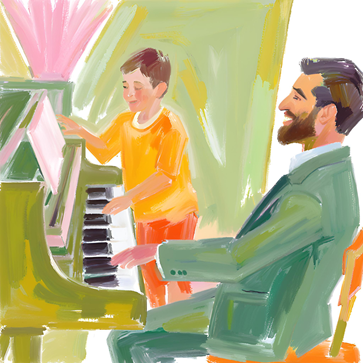 Your child may play something that needs various improvements, but try to pick the most important one and focus on that. It is better to do good work on one aspect than to try to fix everything simultaneously. (Teachers regularly do this in lessons; they notice all the problems but carefully prioritise to help the student focus and stay positive).
Your child may play something that needs various improvements, but try to pick the most important one and focus on that. It is better to do good work on one aspect than to try to fix everything simultaneously. (Teachers regularly do this in lessons; they notice all the problems but carefully prioritise to help the student focus and stay positive). -
Regularly make recordings of their playing (ideally every week) so they can listen back, track their progress or proudly show relatives and friends.


-2-1.gif)
